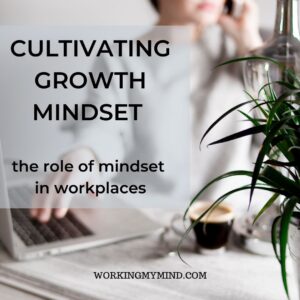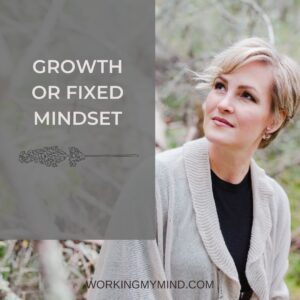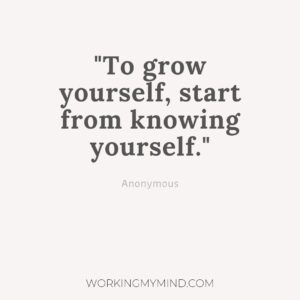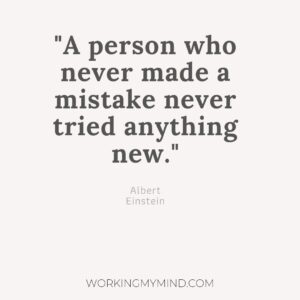Cultivating a growth mindset;
how mindset plays a role in workplaces

By Catharina Kallio
Cultivating a growth mindset will have many advantages in our personal life. Equally, it can also play a great role in workplaces. It is our mindset that sets the tone for how we look upon situations and what decisions we make in the end. This is one major reason why the mindset we have will play a pivotal role in the way we live.
Learning about how we can cultivate growth mindset in workplaces can have a huge impact on helping companies grow.
So, what is a mindset? Mindset can be explained as a person’s assumptions or way of thinking as well as their opinions. A mindset can arise out of a person’s worldview or philosophy of life. It can also be held by one or more people or groups of people.
Looking at the definition above, we start to grasp the power our mindset has on the way we live our lives. Right?
The basics of growth and fixed mindset
According to Carol Dweck, Ph.D. there are two types of mindsets we can cultivate. With a fixed mindset, we believe talents are a set of fixed traits we are born with. Whereas a growth mindset believes talent can be developed by hard work, challenges, and good mentoring.
A growth mindset embraces problems as opportunities to learn and the fixed mindset tries to avoid them, for the fear of failure.
As discussed in the previous article, which you can find here, people tend to lean towards one or the other. But we can also have a fixed mindset in one area of our lives and a more of a growth mindset in another.
The good news according to Dweck is that mindset can be shaped and developed. We can start to cultivate a growth mindset if we wish to do so.
Let´s have a look at how the two mindsets show in our workplaces and what the pros and cons might be.
Understanding the benefits of a growth mindset
Categorizing people to be either smart or not smart, we are using a fixed mindset. If we value raw talent, we are looking at people from a fixed mindset perspective.
Dweck states it is a fact that skills and abilities are malleable. She explains how studying brains when people are working on a problem can show us how mindset plays a big role. The brain of a person with a growth mindset lights up in certain parts when they are put to tackle a problem. In the same situation there happens almost nothing in a fixed mindset brain. They simply leave it and move on. With a growth mindset, it is easier to take on challenges, stick to them and improve.
The power of challenges though is that every time we do something that stretches our minds the neurons in the brain form new connections and we get smarter.
How we experience growth and fixed mindset in companies
Studying how employees feel about their company Dweck found that when asked if people in the company have a more fixed or a growth mindset, there was a consensus amongst the employees. They could feel if the main mindset focused on and used in the company was either fixed or growth.
“In companies where people have a growth mindset, the employees feel more empowered and committed to it. They also feel the companies value creativity and innovation. In these companies, employees feel their company is holding their back. Additionally, they feel collaboration and learning together is on a good level.”
In comparison to this. Employees in the companies where people were having more of a fixed mindset told they had one foot out the door. Waiting for the highest bidder. They also felt that even if the company was talking about innovation and creativity that wasn’t put into practice. Dweck points out that cheating and deception are more common in companies with fixed mindsets. The reason for that is the set of beliefs of talent being fixed. Which raises the need for people to make sure others view them as smart. Otherwise, they will feel like losers.
What we value and cultivate in companies today, will play a role in the future
Do we value raw talent over development and growth? With a fixed mindset, raw talent is favored over the belief that skills can grow by effort and learning.
A fixed mindset always wants to be right. If the thought is, traits and skills are fixed then it is natural to protect against the feeling of not being smart. People with a fixed mindset believe you should not put effort into succeeding because that means you are not smart. Since a fixed mindset looks upon effort as something only for those who don´t have the ability. It is something the imperfect being needs to spend time on. “If you are really good at it you should not have to work hard on it”.
The downside to this is that people with a fixed mindset typically try to hide their errors. They might feel a need to cheat or withhold information, to stay in the position they are in. Or, they may feel superior and have a need to show their excellence.
Focusing on how we think and act
With the rapid pace of change going on in society and companies we need to halt and have a look at where we are at. Where is for instance AI, robotics, technology, and digitalization taking us? What will it require of leaders and subordinates?
If we delude ourselves to believe we are excellent we will stagnate. Instead, we need to grow and to do so, have the courage to question what we learned “yesterday”. We should also become aware of how we think about ourselves and others. Which includes paying attention to our mindset.
Focusing on an authentic readiness to learn and share will make it easier to build surroundings where we are not afraid of making mistakes. Cultivating an environment that favors a fixed mindset among leaders and employees is not going to help companies grow.
Cultivating a growth mindset; how mindset plays a role in workplaces
Let´s make one thing clear right from the get-go. Companies in themselves cannot have a fixed or growth mindset. It is the people in them that have mindsets. Period.
“A culture that fosters a growth mindset is a culture in which all employees are perceived as possessing potential and they are encouraged to develop. Instead of being rewarded only by outcome or results they are acknowledged and rewarded for improvement.”
The individual perspective
From an individual perspective, there are things we can focus on and do, to change our own mindset. Deciding on having a specific mindset is, in the end, a deliberate choice we can make for ourselves. Changing mindsets isn´t always easy but it is possible and doable. It needs to start with becoming aware of the existing differences and building up the courage to have a long look in the mirror. Only then can we see our own thought-patterns and behaviors with open eyes.
Company culture and strategy
Most of us may be familiar with the statement; culture eats strategy for breakfast. What this means in short is that implementing a strategy is going to need the support of the company culture for it to work. These two need to be linked to one another in some way. But it is the executions that can be carried out in various ways.
Culture is an umbrella term that encompasses for instance beliefs, behavior, norms, and habits. As humans, we acquire culture through learning processes and socialization. As well as in societies there are cultures in organizations. You will find more about the topic here.
Transforming company culture by focusing on mindset
Transforming company culture by focusing on mindset is an interesting strategy to look for change. Microsoft CEO Satya Nadella is credited with leading the company through a culture change using a growth mindset strategy. This is a deliberate way of combining the two; company culture and mindset.
What the leaders in a company value or don’t value, will have a direct impact on the company culture. If we wish to cultivate a growth mindset in companies (in the people of course) it needs to start with the leaders. This is what Satya Nadella is doing by training leaders to switch from a fixed to a growth mindset.
As the leaders of the company embrace a growth mindset it will lead to changes in many areas. Regarding both attitude and action. The change can be noticed in for instance how we set goals, what and how we measure when the outcome is concerned. It is going to show how we give feedback and what the impact this will have on innovation and development. Stay tuned for the next article which will further dive into this topic!
As a leader, are you looking for talent or people who are willing to grow by stretching themselves?
Would you like to learn more?
- Mindset, the new psychology of success
- The power of believing you can improve
- The growth mindset
- Dweck, Carol S., Mindset, Du blir vad du tänker






